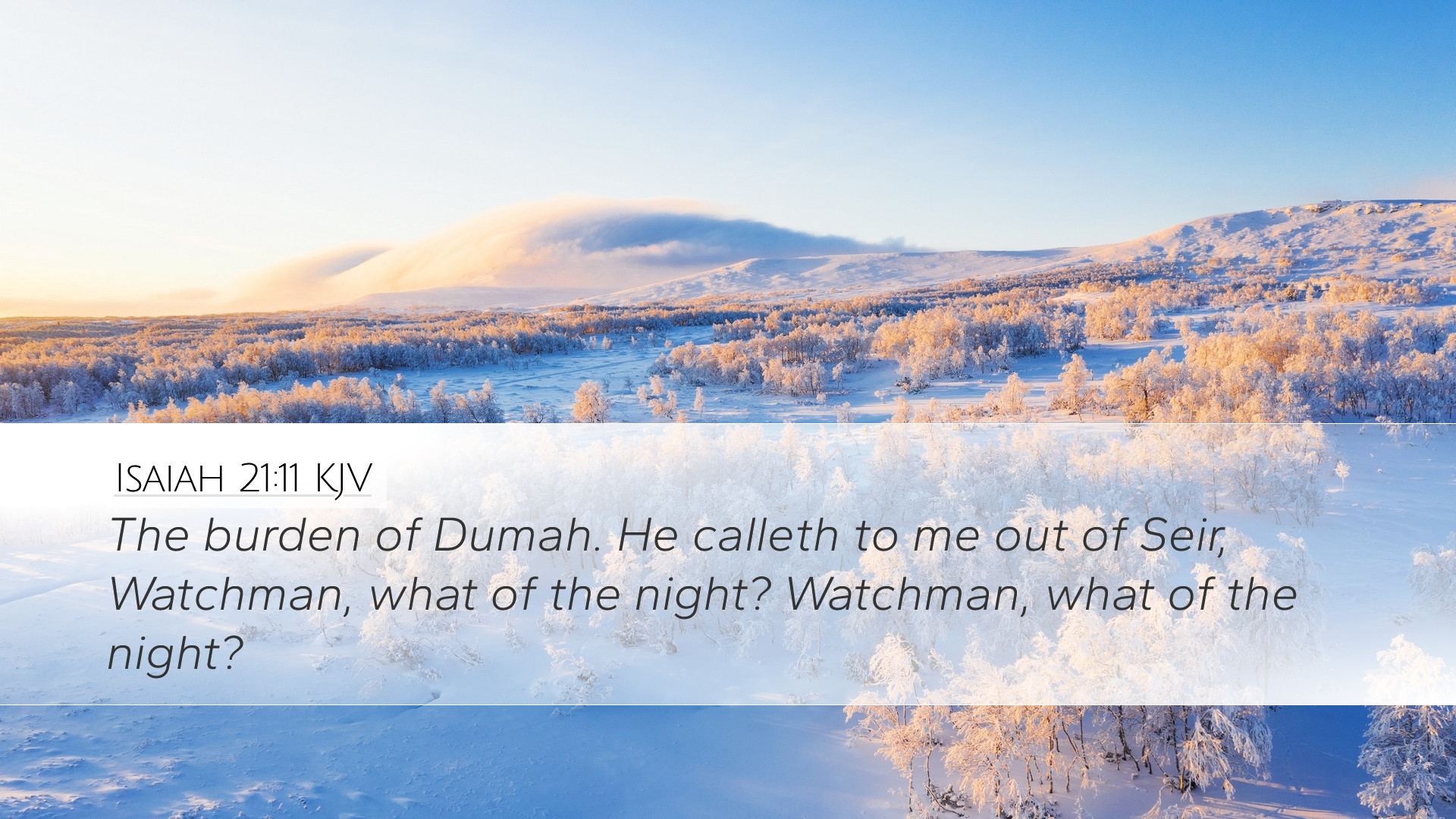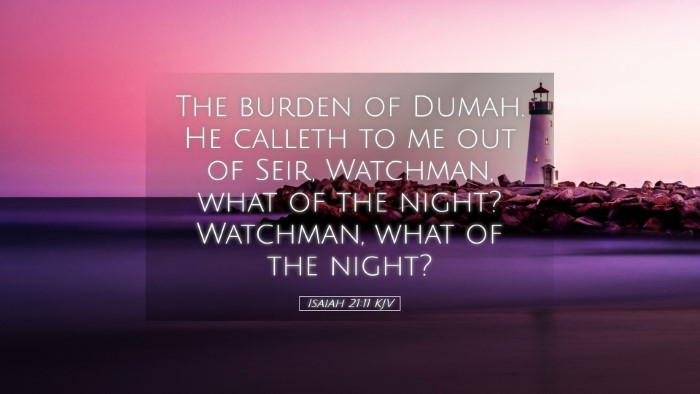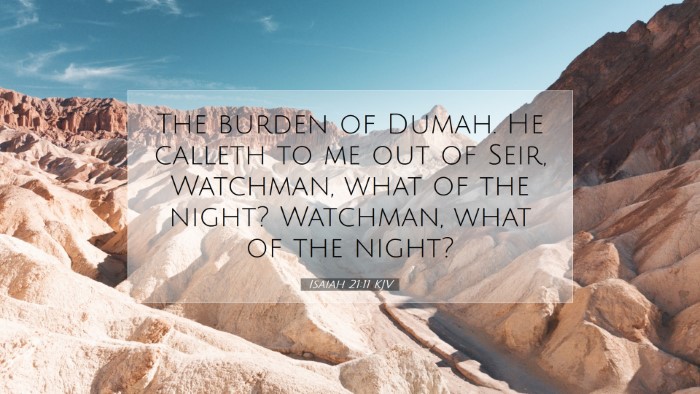Commentary on Isaiah 21:11
Isaiah 21:11 states: "The burden of Dumah. He calleth to me out of Seir, Watchman, what of the night? watchman, what of the night?" This verse encapsulates a cry for guidance and understanding amidst turmoil, reflecting both immediate and broader prophetic themes. The context reveals layers of meaning that deserve exploration.
Contextual Background
The prophecy concerning Edom, derived from the mountainous region of Seir, indicates an impending calamity. Dumah, often interpreted as a synonym for silence or stillness, becomes a metaphorical backdrop for divine communication. This inquiry highlights the tension between watchfulness and the dim prospects of the shadowed night ahead.
Insights from Matthew Henry
Matthew Henry highlights that in this verse, we see the role of the watchman as critical. The watchman's duty is to remain vigilant, overlooking the approaching threats at night. Henry remarks that the inquiry is dualistic—indicating both the physical and spiritual state of the people. The call from Seir suggests a sense of urgency and desperation, representing a request for clarity regarding the situation faced by Edom.
-
Watchman’s Role: Henry emphasizes the significance of the watchman's vigilance in providing insight and warning. The watchman must be attentive in dark times, representing spiritual leaders who guide their communities.
-
The Dark Night: The repeated question, "What of the night?" suggests a continuous state of waiting and uncertainty. Henry elucidates this as reflective of the human experience of divine silence, particularly during times of suffering and distress.
Thoughts from Albert Barnes
Albert Barnes draws upon the historical context to bridge the textual meaning with practical implications. He identifies the key characters in this prophecy—the watchman, who is central in maintaining alertness and conveying God's message, and the people of Edom, initially oblivious to their plight.
-
Symbolism of Dumah: Barnes describes Dumah as representing a state of dreariness and mourning, which can be seen in the wider narrative of impending judgment. It acts as a powerful metaphor for spiritual barrenness.
-
Interpretation of Seir: The reference to Seir not only locates the inquiry geographically but also spiritually. Barnes suggests that it serves as a reminder of human frailty in the face of divine oversight.
Reflections from Adam Clarke
Adam Clarke elaborates on the prophetic implications inherent in this passage. He delves into the narrative of watchfulness, illuminating the dichotomy between expectation and reality. Clarke notes the implication that times of distress often lead to an earnest longing for revelations from God.
-
Urgency in Calling: Clarke underscores the urgency in the cry for insight as indicative of the soul's quest for guidance. The watchman symbolizes spiritual leaders who must remain faithful in their duties, especially during crises.
-
The Nature of the Night: He further expounds that the inquiry about the night metaphorically represents the spiritual condition of Israel and its neighbors, signifying a need for hope and clarity.
Theological Implications
The theological implications of Isaiah 21:11 resonate profoundly with contemporary issues of faith and guidance. The watchman’s role reflects the responsibilities of church leaders today in providing clarity in times of darkness. The motif of night speaks to the spiritual confusion that often overshadows communities.
Moreover, this passage instills a sense of hope, reminding believers that despite the prevalent darkness, there exists the opportunity for divine intervention and the renewal of understanding.
Practical Applications
In the light of peaceful reflection, we glean several practical applications from Isaiah 21:11 for modern believers:
-
Awareness of Spiritual Warfare: The metaphor of darkness calls Christians to recognize the ongoing battle with sin and spiritual apathy within themselves and society.
-
Importance of Vigilance: Pastors and church leaders must embody the watchman’s vigilance, offering counsel and preaching through the lenses of hope and faith, especially during difficult times.
-
Seeking Clarity from God: Believers are encouraged to remain persistent in prayer, seeking God’s wisdom and understanding. The model established in this verse represents an earnest pursuit of divine insight, particularly amid uncertainty.
Conclusion
Isaiah 21:11 holds a profound and rich commentary that spans both historical and contemporary relevance. From the watchman’s call to the often-dark night, there is a clear appeal for awareness, vigilance, and the assurance of divine presence. As the church confronts modern challenges reminiscent of the night depicted in Isaiah, the call for watchfulness remains critically pertinent.


